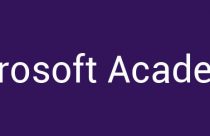Omnity: A New Multilingual Search Engine for Academics

A multilingual document search engine called Omnity could make interdisciplinary research easier. This tool was launched in May 2016 and is based on semantic mapping, thereby allowing users to look for information through context rather than keywords. The new platform uses rare words in complete documents as a search term and compares them to millions of other documents, promising a more efficient and creative search.
Accelerated Discovery between Fields of Knowledge
Omnity is particularly useful for academics, allowing scientists, engineers, medical professionals, financial experts, and lawyers to search for information in a variety of sources including scientific journals, patents, grant applications, clinical trials, legal records, financial reports, and others.
The tool was developed to accelerate “the discovery of otherwise hidden, high-value patterns of interconnection within and between fields of knowledge.” According to Omnity, the semantic search engine can compare 100,000 documents in a fraction of a second. A single person would require 10,000 years to do the same job.
In December last year, the platform was updated to encompass more than a hundred languages, including Chinese, Japanese, Korean, Farsi, Russian, German, French, Spanish, and Arabic, so researchers can now simply upload a document in any of these languages and will then receive a graph with relevant results, even if the related documents do not cite or link to one another.
Using Omnity
Considering the amount of information available out there, it is getting increasingly difficult to keep an eye on the newest developments in a particular field—and it is even more complex to follow what is going on in other areas of research. Omnity’s goal is to make this easier, but how does the tool work?
The user must first sign up for an account and can then either type a query in the search bar or drag-and-drop a document into the search window. The system scans the text and looks for the most unusual words and phrases, subsequently translating that signature into a mathematical representation and producing a query. It then looks through its own libraries—across different fields of research—and presents the user with the most relevant matches.
The results are divided into primary sources (those directly related to the query) and secondary sources (those that share key concepts with the primary documents). Connections between documents are illustrated in highly detailed charts, graphs, and maps. Users can click a word cloud to see documents containing those words.
Omnity allows academics to rapidly scan documents in many different languages and various research fields, making global, interdisciplinary studies easier. The basic service can be used for free, but there is also a paid version (with enhanced features) for enterprise-level customers. At the moment, the database is focused on English-language repositories, but the company is planning to add non-English documents over time.









